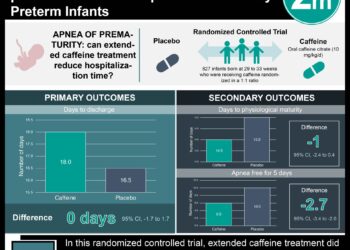Quick Take: Preterm birth and risk of chronic kidney disease from childhood into mid-adulthood: national cohort study
Fetal nephrogenesis is most significant in the third trimester of pregnancy, and is interrupted by preterm birth before 37 weeks of gestation, resulting in lower nephron numbers and the development of hypertension and progressive renal disease later in life. While low birth weight has been associated with chronic kidney disease and preterm birth has been associated with neonatal acute renal injury, the long-term risk of chronic kidney disease with preterm birth has not been directly examined. In this Swedish registry-based national cohort study of 4,195,2294 singleton live births between 1973 and 2014, subjects were followed up to investigate the relation between preterm birth (gestational age <37 weeks) and risk of CKD from childhood into mid-adulthood. Cases were identified using ICD codes from registered primary and secondary diagnoses in hospital and outpatient registries (maximum age 43 years). Of 4,305 (0.1%) participants who were given a diagnosis of chronic kidney disease, pre-term (<37 weeks) and extremely pre-term birth (<28 weeks) were associated with approximately two-fold and three-fold increased risk, respectively (adjusted HR 1.94, 95% CI 1.74 to 2.16, p<0.001; HR 3.01, 95% CI 1.67 to 5.45, p<0.001). The association was strongest between ages 0 to 9 years (adjusted HR 5.09, 95% CI 4.11 to 6.31, p<0.001), but was significant across all studied age groups up to 43 years of age affecting both males and females. The findings of this study therefore support the hypothesis that pre-term and early-term births are strong risk factors for chronic kidney disease, particularly between childhood and mid-adulthood, warranting close long-term follow-up and renal function monitoring, counselling, and risk factor modification where possible.
Click to read the study in BMJ
Image: PD
©2019 2 Minute Medicine, Inc. All rights reserved. No works may be reproduced without expressed written consent from 2 Minute Medicine, Inc. Inquire about licensing here. No article should be construed as medical advice and is not intended as such by the authors or by 2 Minute Medicine, Inc.









